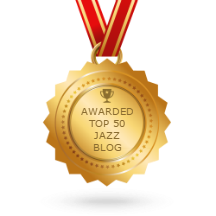The recordings in this post do represent consensual choices and are fair models of how "jazz" and 'blues" stylistically gelled as they moved into the center of American popular culture...
Common wisdom sets blues recording as an early 20's phenomenon, but blues were recorded well before then, the first one most likely back in 1914: W.C. Handy's Memphis Blues. The first vocal blues recording was white vaudevillian Morton Harvey's version of that tune:
Not bad, if a bit too reminiscent of Robert Goulet.
 |
| Mamie |
 Norah Bayes and Marion Harris, both very big vaudeville stars, also recorded blues in the teens. Harris, however, was probably the first woman to record a song with "jazz" in the title. "Keep sousa, gimme the jazz," says "When I Hear That Jazz Band Play:"
Norah Bayes and Marion Harris, both very big vaudeville stars, also recorded blues in the teens. Harris, however, was probably the first woman to record a song with "jazz" in the title. "Keep sousa, gimme the jazz," says "When I Hear That Jazz Band Play:"As far as while male jazz vocals, I said in the first vocal post that Collins and Harlan were the earliest performers of songs with "jass" in the title, although calling them jazz singers calls for a loose interpretation of the word.
It's clear that early black instrumentalists in the pre-jazz to jazz style-Buddy Bolden, Frankie Dusen, Freddie Keppard, Jelly Roll Morton, Wilbur Sweatman and others-used vocalists or sang themselves. Despite this, almost no black males in the jazz/blues category were recorded during the teens. Why this is so, one can only conjecture. W.C. Handy's group, which, in 1917, was arguably the first black jazz group to record, had no vocals. George Johnson, Bert Williams, Will Marion Cook and others recorded very early on, but they were not doing jazz.
The guy I think must get the nod as the first African-American male to record in a discernibly jazz style is Noble Sissle. Sissle is better known for his work as a composer, stage performer and collaborator with Eubie Blake, but he should be recognized for his early jazz singing, including his recordings in 1919 with James Reese Europe's Hellfighters Jazz Band, which include this chestnut:
Residual stylistic traits are still there in these "firsts:" declamatory inclinations (bad name for a rock band), fast vibrato and intense enunciation. But, there is also increasing rhythmic freedom, instrumental backing that has improvisational elements and self-referential lyrics that make it clear that the makers of the music knew they were doing something modern, fashionable and slightly risque.
Next Time: Crooners, Country and Scat
.
Thank you to pals on the Come On and Stomp and Hot Jazz Records Facebook groups for their assistance with the Sissle section.


3 comments:
Crazy Blues wasnt the first Mamie Smith record, Perry Bradford set her up to cut his tunes A Thing Called Love b/w You Can't Keep A Good Man Down with a white band on Okeh a few months before. But it is the 1st black woman blues record with a black jazz band, and may also be the first black jazz record of a blues-infused, non-ragtime type - none of the Handy records are this loose & bluesy, Sweatman even less so.
Grazie. It's the fact that Crazy Blues took off so dramatically that makes it overshadow other recordings. Wonder why that was. Maybe people were somewhat familiar with the tune through SIssle's version and it just hit right.
Mamie's version is August, Sissle & Blake's Dec. 1920. I think it hit because the band was slammin', with no concessions to dominant white tastes - blacks knew it was of by & for them, and they were responsible for 99.9% of the sales. It made the record companies realize that black people bought records, and swamped out the threat of a southern boycott, that was the rationale for not recording real black music previously. (Original title "Harlem Blues"). Also pretty much the 1st document of indigenous NYC-style jazz, a parallel development to N.O. style, with not much if any direct influence therefrom.
Post a Comment